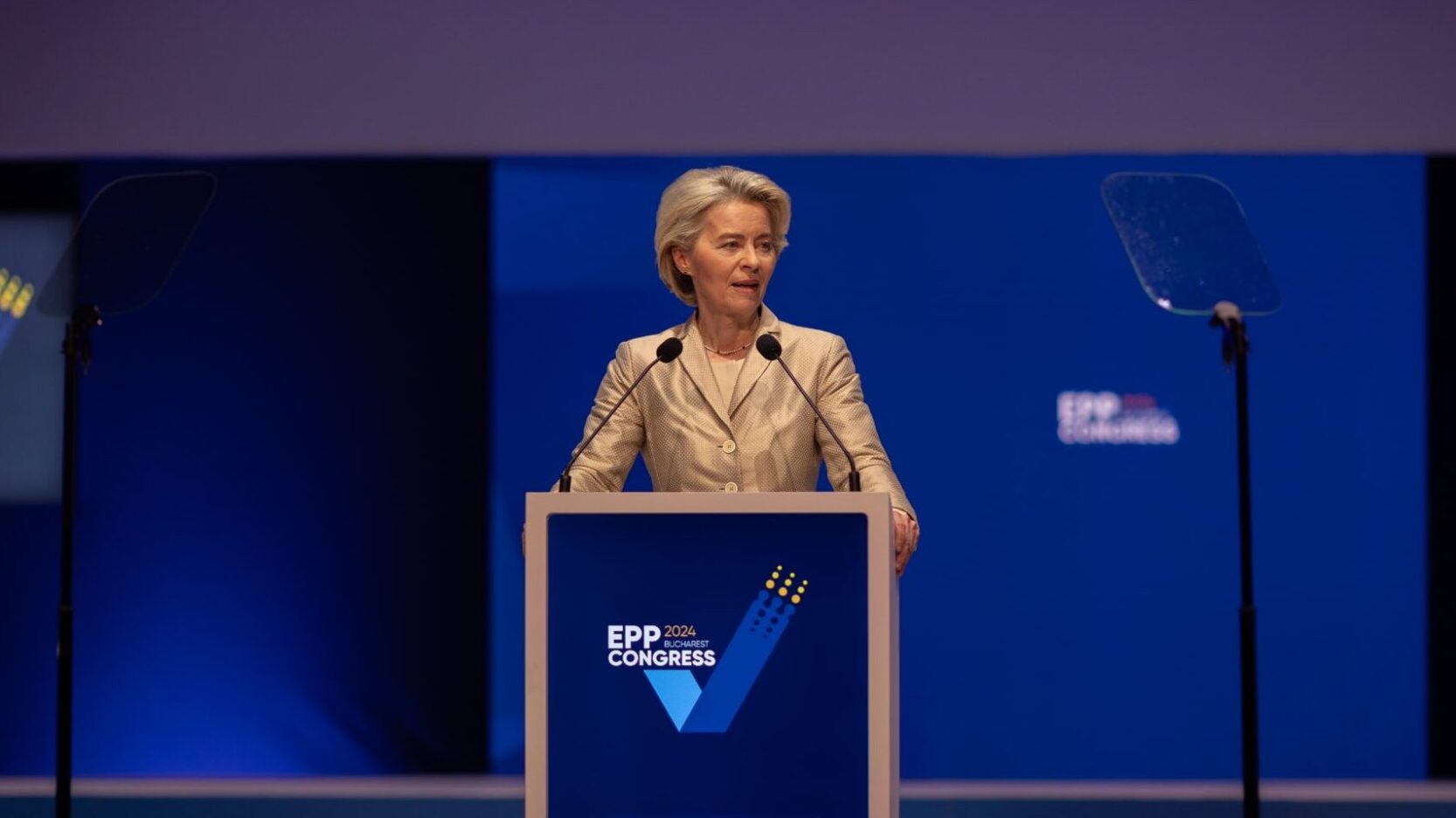
EU Commission President Ursula von der Leyen is facing an unexpected obstacle to her reelection bid this week as French establishment conservatives strongly criticised her “technocratic reflexes” and alliances with the left at the annual congress of the European People’s Party (EPP) in Romania this week.
Europeans are less than three months away from elections, with von der Leyen expected to easily return to the EU top job in what critics have branded a “coronation” rather than an actual reelection campaign.
Centre-right parties from across Europe are meeting in Bucharest this week to decide on a common platform as the EPP, the largest faction within the European Parliament, meets to launch its manifesto amid concerns that the group has veered way to the left since 2019 on green issues and migration.
To return to her role in the Commission, von der Leyen requires the backing of the wider EPP family—an easily accomplished task—but one that nevertheless has been complicated by an unexpected rebellion by French MEPs belonging to the centre-right Les Républicains party who have complained about von der Leyen’s tacit backing of French President Macron.
French party Les Républicains has been struggling to deal with the rise of national populist parties in the form of Marine Le Pen’s Rassemblement National and Éric Zemmour’s more recent Reconquête movement. Les Républicains Party President Éric Ciotti said in an open letter that von der Leyen “has continuously left the European majority drifting towards the left.”
Les Républicains ne voteront pas pour la réélection d’Ursula von der Leyen à la tête de la Commission européenne.#Vonderleyen incarne la dérive technocratique de l’UE, elle est la candidate de Macron.
— Eric Ciotti (@ECiotti) March 6, 2024
J'ai exprimé notre opposition ferme dans une lettre adressée à… pic.twitter.com/1gqSHr0Kbi
The architect of the European Green Deal, von der Leyen has taken heat in recent months as farmers across the EU rally against Brussels regulations they say will drive their industry into oblivion, resulting in many in the EPP fearing that they are losing control of a former voting bloc to populists.
Despite minor concessions on the use of pesticides and a half-hearted promise to tone down rhetoric for her next five-year term in office, von der Leyen is facing open rebellion from the French and potentially other delegations in Romania due to her leftward shift.
Also on the EPP’s radar this week in Romania is how to deal with the emergence of national populism with a general North-South divide in the EPP about whether to work with right-wing parties over the left.
Generally speaking, EPP parties in the Mediterranean are open to cooperation with populist parties, as Italian Foreign Affairs Minister Antonio Tajani used the Romanian Congress to urge collaboration with Italian PM Giorgia Meloni.
Here we go: Antonio Tajani opens the door wide open for the EPP to work with the hard-right ECR group after the June elections.
— Jorge Liboreiro (@JorgeLiboreiro) March 6, 2024
“We certainly cannot think there are only socialists in the EU institutions,” he said in Bucharest.
pic.twitter.com/bVjR7dEVbS
Whether the EPP is willing to work with nationalist and populist parties in the ECR and ID groups may well be a defining issue for the next session of the European Parliament after the June elections, with socialists planning to entrench their technocratic control over EU institutions in the face of a rising tide of right-wing populism across Europe at their own congress in Rome.
The EPP’s congress finishes up Thursday with the party giving its approval to a “Rwanda-style” scheme for farming out asylum processing to third “safe” countries as party leaders peppered their speeches with the usual warnings about the dreaded “rise of the far right.”
